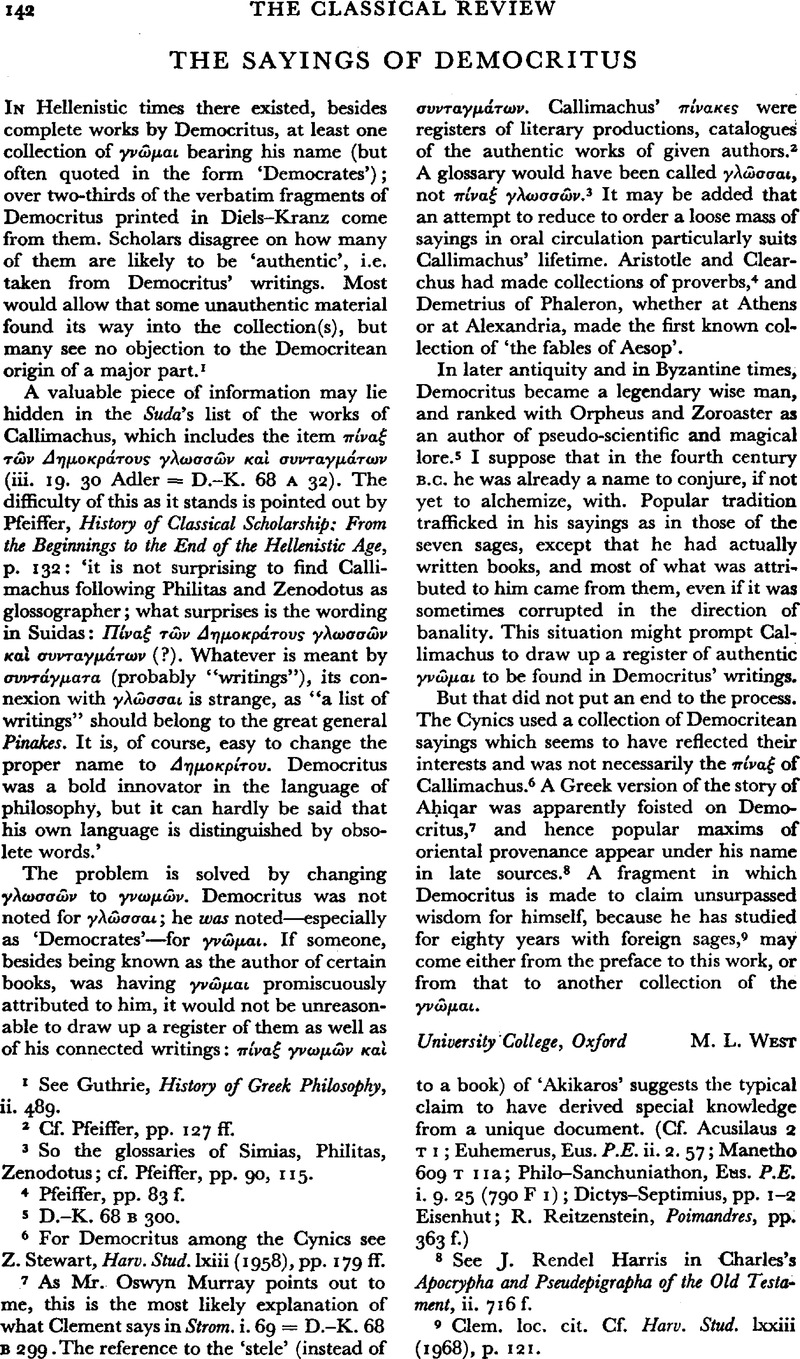Article contents
The sayings of Democritus
Published online by Cambridge University Press: 27 February 2009
Abstract

- Type
- Review Article
- Information
- Copyright
- Copyright © The Classical Association 1969
References
1 See Guthrie, , History of Greek Philosophy, ii. 489.Google Scholar
2 Cf. Pfeiffer, pp. 127 ff.
3 So the glossaries of Simias, Philitas, Zenodotus; cf. Pfeiffer, pp. 90, 115.
4 Pfeiffer, pp. 83 f.
5 D.-K. 68 B 300.
6 For Democritus among the Cynics see Stewart, Z., Haw. Stud. lxiii (1958), pp. 179 ff.Google Scholar
7 As Mr. Oswyn Murray points out to me, this is the most likely explanation of what Clement says in Strom, i. 69 = D.-K. 68 B 299. The reference to the ‘stele’ (instead of to a book) of ‘Akikaros’ suggests the typical claim to have derived special knowledge from a unique document. (Cf. Acusilaus 2 T 1; Euhemerus, Eus. P.E. ii. 2. 57; Manetho 609 T IIa; Philo—Sanchuniathon, Ens. P.E. i. 9. 25 (790 F I); Dictys—Septimius, pp. 1–2 Eisenhut; Reitzenstein, R., Poimandres, pp. 363 f.)Google Scholar
8 See Harris, J. Rendel in Charles's Apocrypha and Pseudepigrapha of the Old Testament, ii. 716 f.Google Scholar
9 Clem. loc. cit. Cf. Harv. Stud. lxxiii (1968), p. 121.Google Scholar
- 1
- Cited by


